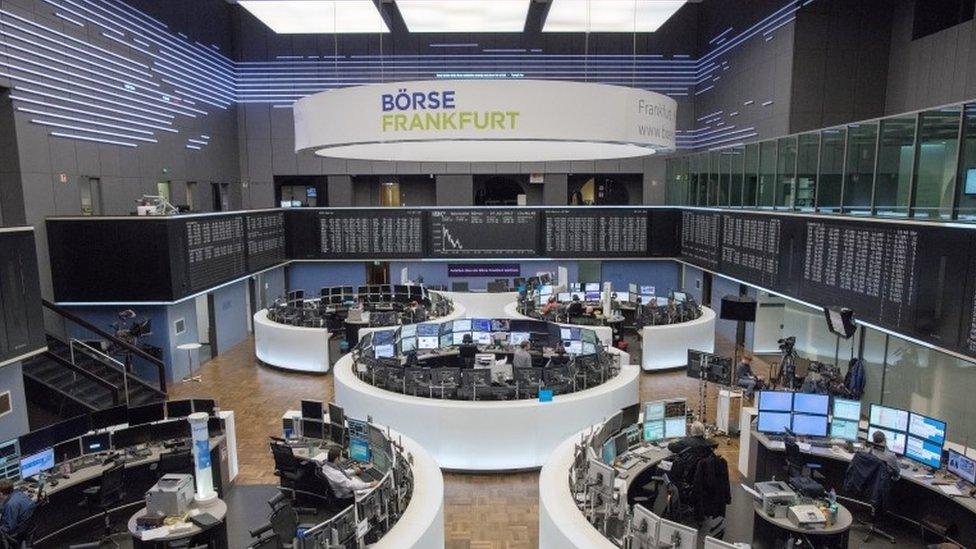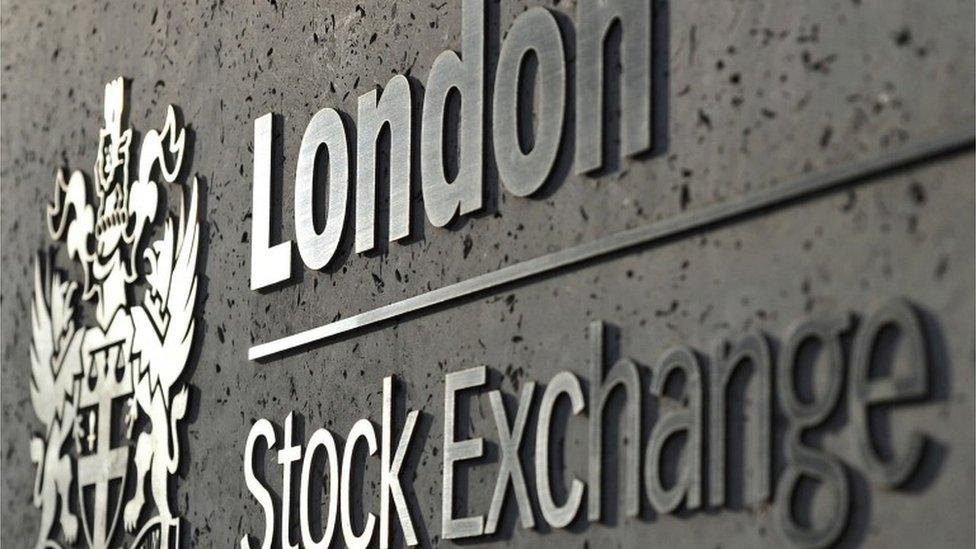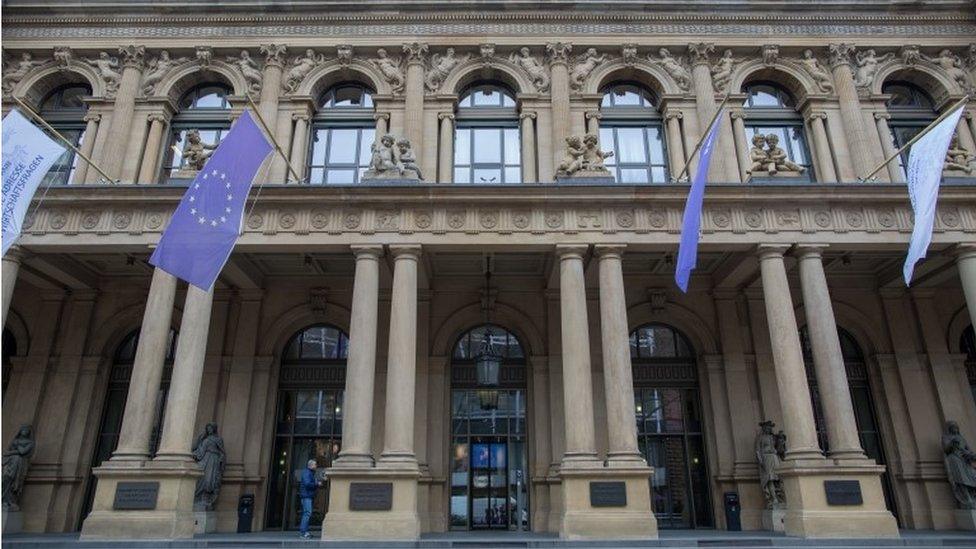The LSE-Deutsche Boerse deal looks dead: Who killed it and why?
- Published
- comments

Trading floor of the Frankfurt stock exchange
The blow was officially landed by the European Commission who came up with a last minute requirement, on 16 February, for the London Stock Exchange (LSE) to sell its Italian bond trading platform (MTS).
Although not a massive contributor to the revenues of the LSE, the Italian government bond market is Europe's biggest, because Italy has the most debt.
MTS is a systemically important company in that market and the LSE was not prepared to sell it.
The reason, according to the LSE, is two-fold.
First, it had spent a long time talking to Italian regulators reassuring them of the LSE's commitment to invest in its Italian business.
To then turn tail and sell at short notice for the sake of expediency would look bad.
That argument sounds a bit thin.
The second reason concerns responses to a questionnaire sent out by the LSE and Deutsche Boerse to their customers and other market participants, to canvass their concerns over the merger.
The ownership of an Italian bond clearing platform did not even make the short list of concerns.
The LSE concluded from all this that the Commission was playing games and once it had decided to be that capricious, there was no point playing the game.
That sounds a bit more like it.
Who did it?
So the question then is, who put the Commission up to it?
The two prime suspects are France and Germany.
France has been aggressively trying to pinch business from London, as Paris sees itself as the city best placed to pick up any post-Brexit business.

A deal between Frankfurt and London, goes the the argument, would have shored up their positions, making both of them stronger and less likely to leak business to Paris.
It is a deal which would tighten the bonds that Paris hoped Brexit would loosen.
There is one big problem with that theory.
France would have received a massive boost if the deal had gone ahead because the LSE had already agreed to sell a major part of its financial clearing business (LCH Clearnet SA) to the French company Euronext.
If you are after more euro-denominated business being done by a French company, in France, this deal would have achieved that in a stroke.
Unpleasant smell
Which leaves Germany.
Politicians from the region of Hesse, which is home to Frankfurt, have always been deeply suspicious of any power shift to London.
Despite painstaking efforts by both parties to explain that the individual LSE and Deutsche Boerse businesses would continue to be governed by national (UK, Italy, German etc) regulators, Hesse never got over its misgivings about locating the European headquarters of the new joint enterprise in London.

European flags hang above the entrance of the stock exchange in Frankfurt, Germany
Indeed, it seems that many German politicians were convinced that the headquarters would ultimately end up in Frankfurt in keeping with Deutsche Boerse's 54% majority shareholding.
When it became clear that the company was determined to base itself in London, reservations began to build, particularly in a German election year.
Finally, although the German Finance Minister, Wolfgang Schauble, was relaxed about the deal at first, a series of allegations around the timing of share purchases and awards to the chief executive of Deutsche Boerse, Carsten Kengeter, wafted an unpleasant smell over the deal into the political arena.
Carsten Kengeter denies any wrongdoing.
Not dead yet
There is, as yet, no smoking gun.
In fact, we do not even have a body.
Sources close to both parties tell me the deal to merge the two stock exchanges is not yet dead.
The parties have a few weeks to try and breath life back into this.
But as one shareholder of the LSE told me today, "this deal was always going to be difficult, Brexit made it more difficult and when you realise are clearly swimming upstream against the European Commission, sometimes its best to call it a day".
The other possibility is it was self-inflicted.
It just did not make sense after Brexit, so why not kill it off?
The Commission was doing everyone, especially the LSE, a favour by asking for something they could decline in a principled (and grateful) huff.
There is no doubt that piloting this deal through turbulent waters was going to be a hard slog and take up valuable management time and effort.
One source close to the deal said: "This is the problem with Europe in microcosm - we tried to do a Europe-facing deal for everyone's benefit and Europe killed it off".
There are also those who think the LSE would be better facing west and pivoting away from Europe.
The big exchanges in the US will be poring over all this very carefully and may yet make sure LSE shareholders are well rewarded.
This is a very tempting theory but both the UK and German sides swear blind it is not true and both seem keen to rescue the current deal if at all possible.
Defenders of this grand deal claim politics and emotion has trumped over business rationale.
With Article 50 about to be triggered, we may have to get used to that.